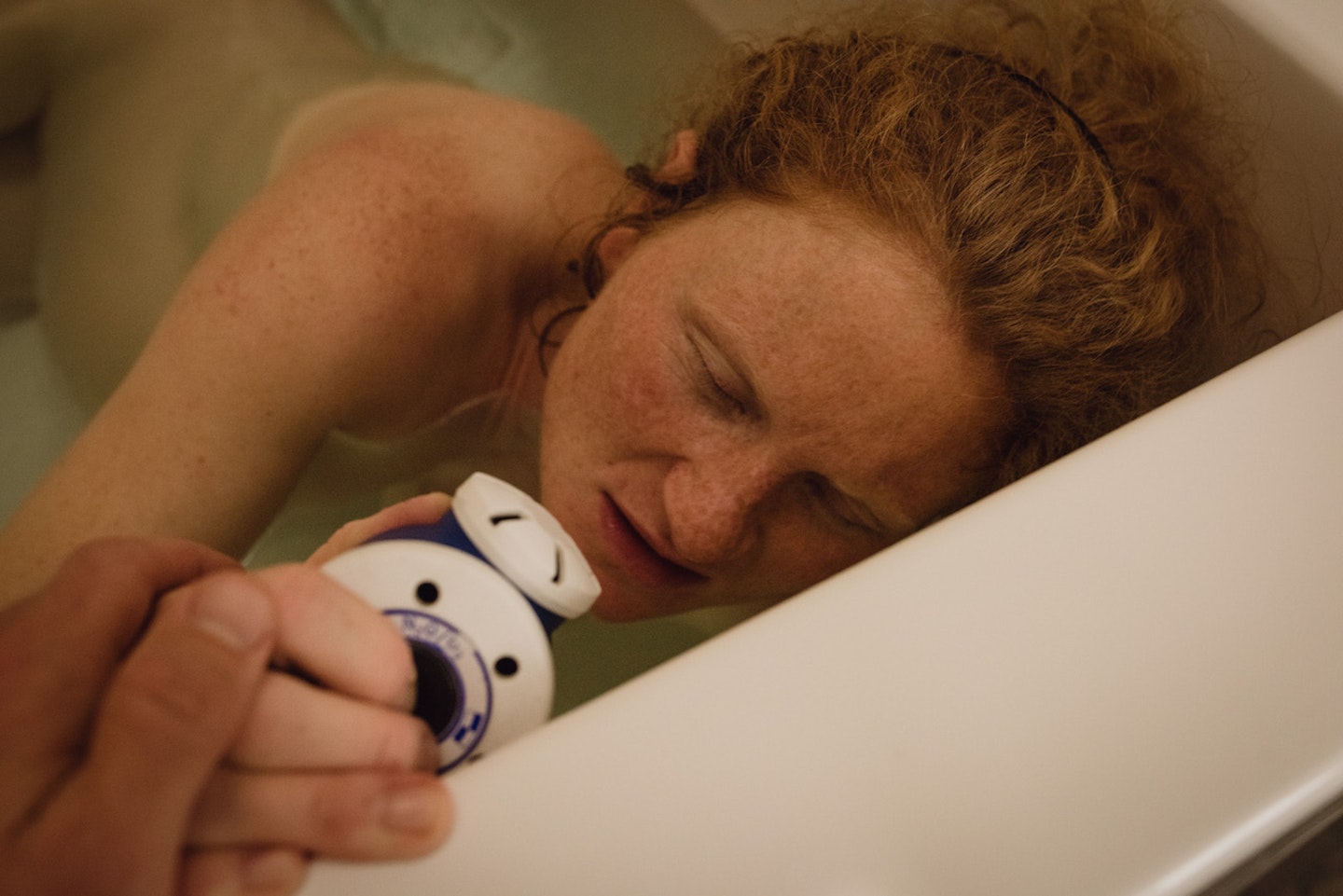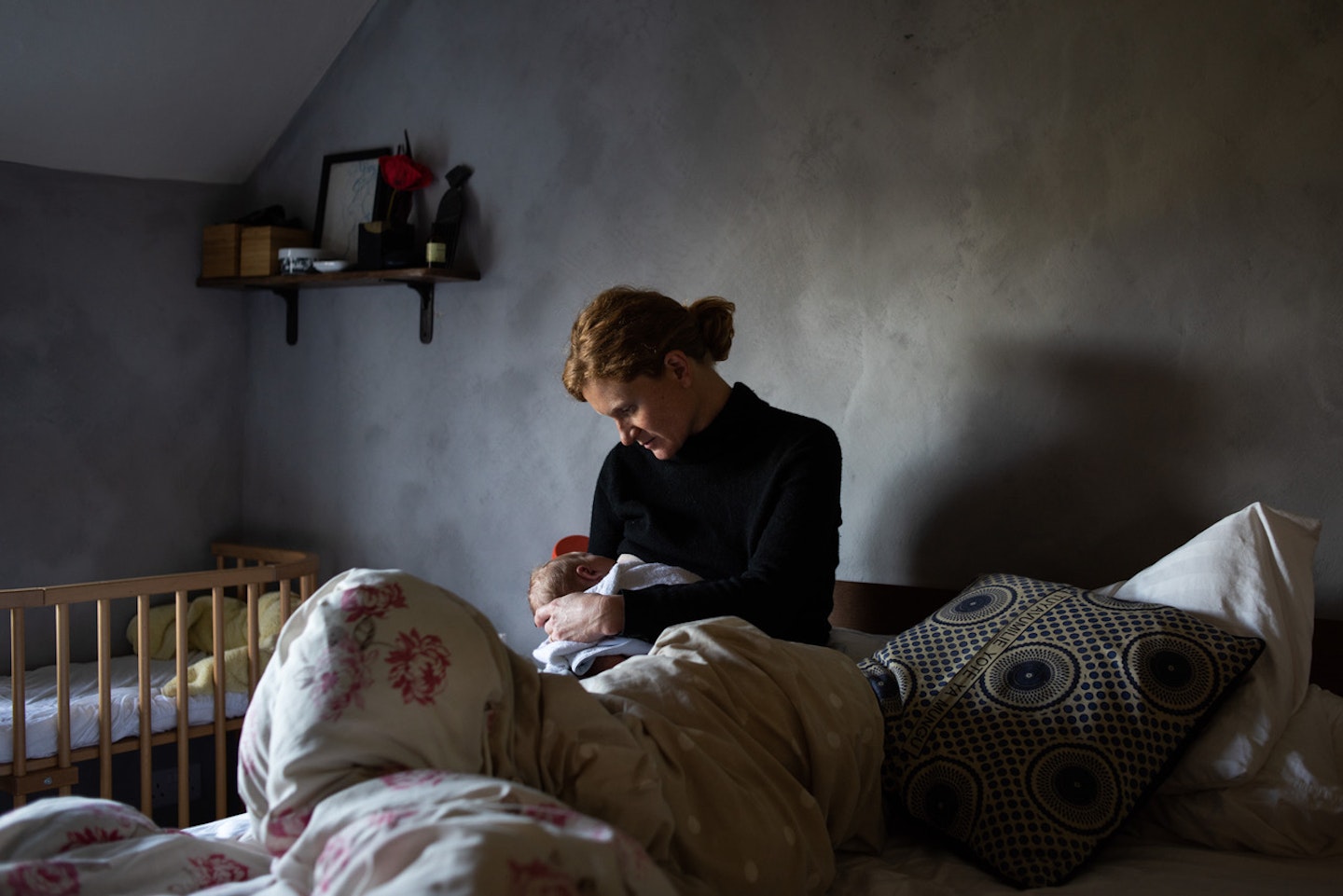Vagina. It’s an easy word to type – once my index finger locates the ‘v’, the rest is muscle memory. I tapped it out a lot during the first lockdown of 2020, when I was writing my book, After Birth, about postnatal health and recovery (whilst being pregnant myself). With hindsight, it seems fitting that I wrote the book in isolation, because, well, the truth is that I’m not terribly comfortable with the v-word myself. With lockdown ending, and my book hitting the shelves, I am realising that I find it much easier to write about these things than I do to speak about them.
I’m not alone. A recent survey of young British women found that 65% struggle to say the words vagina and vulva. More startling was the survey’s finding that around half of young women couldn’t correctly identify the vagina on a diagram of a woman’s private parts.
“What was it that inspired you to write the book?”, a podcaster asked me recently. Having a baby delivers a shock in so many ways – both to your body and your mind – and yet there is almost no healthcare available on the NHS to support new mothers. This was what I said, but what I should have said is more specific: it was what happened to my nether regions – specifically my pelvic floor muscles, vagina and vulva – that provided the initial impetus for the book. It’s not like anything particularly egregious happened – I was lucky; my first birth was a largely positive experience. But I was still left feeling like I’d been stuck by a thunderbolt, and the absence of care afterwards floored me.
A few months after my first child was born, a friend summed up the problem succinctly: “For months, I walked around thinking, oh – hello vagina. Oh, there you go again, as it made itself known to me throughout the day. No one talks about this, or any of these things – the incontinence, the pain, the stitches, how they’re healing, and how you’re coping with it all mentally.”
She was the first woman to be completely straight with me about her experiences after childbirth, during which she sustained a bad tear that damaged the muscles of her anus. Her words, and her honesty, sent me on a voyage of investigation that lasted three years. It was humbling, as dozens more brave women opened up to me about their own postpartum experiences, overcoming embarrassment in an attempt to make it better for those who will go through it in the future.
A sense of awkwardness, which speaks of a deeper sense of shame, has been ingrained in women for centuries. It’s something men simply don’t have, and something we urgently need to shake off.

It’s not just vaginas. Women typically avoid discussing so many things relating to their bodies – spots, pubic hair, menstruation, the list goes on. These are not things we are taught to speak easily about. The reason it matters – and where the stigma becomes dangerous – is that it translates into a reluctance to talk to anyone about female health complaints, doctors included. This in turn both cuts us off from much-needed help and support, and masks the extent of our problems. By not giving female body parts and functions their proper names – something that usually starts when we’re infants – we teach a new generation to perpetuate the uncertainty and taboo.
My inability to use the v-word, or to discuss subjects like incontinence, was not a problem until I gave birth. Then, suddenly, I needed language I didn’t have – to ask about different parts of my anatomy that no longer felt the same, and to reach out for help. But instead of seeking help I smiled broadly and told anyone who’d listen that my body was amazing.
Of the three quarters of women who give birth vaginally in this country, around a third experience symptoms of incontinence afterwards. And about half of them find sex painful 6-12 months after labour. Seven percent damage their anal sphincter during labour and require surgery to repair it. If the injury isn’t spotted at the time, or repaired well, it can be life-changing.
Too often, symptoms relating to childbirth are written off as normal, when they are absolutely not; they are common, but never normal. These issues have been called the last taboo, and for good reason – our society doesn’t prepare us for the potential impact of pregnancy and childbirth on our bodies, and it doesn’t provide women with adequate support to address their symptoms.
Many women only seek help when their problems worsen with age. Half of all women over fifty suffer pelvic organ prolapse (when their bladder, bowel or uterus drops down due to lack of support), a statistic I find staggering when I think that I hadn’t even heard of the condition just a few years ago. One in ten women will, at some point, have surgery for a prolapse – when simple knowledge and physiotherapy after pregnancy and childbirth could have allowed them to avoid it.
Commentators have predicted it will emerge as one of the predominant feminist issues of our time – and spark one of the biggest public health shifts.
Sally, a GP, described to me how she experienced “fanny farts” months after her first baby was born. She knew this wasn’t right so asked a trusted colleague to take a look. The colleague referred her to a gynaecologist, who found she’d been living with a third-degree tear, sustained during her daughter’s birth. She’s a GP by training, and she confided in someone who made her feel safe, but admits that even she found it hard to put into words the fact that she was expelling air from her vagina.
“I knew that fanny farting was unusual for me so I was ready to offer it up to my GP, but I think a lot of women would rather put up with it out of embarrassment”, she said. And therein lies the problem, because if we don’t venture information like this, not only will we not get help ourselves, but nor can the full extent of our perinatal healthcare needs ever be known and addressed, condemning future generations to inadequate care.
When we do shake off the cloak of taboo and speak about our concerns, however, they are too often ignored or met with substandard responses; our healthcare professionals don’t have the funding to help.
Six months after my first baby, I went to the doctor because my pelvic floor still wasn’t strong enough for me to run without leaking. The doctor (who was female and a mother herself) told me a degree of incontinence was perfectly normal after having a big baby; it should get better with time. In any case, if it didn’t, she wouldn’t recommend treatment until I’d finished my family. Initially, I felt relieved – who doesn’t want a normal vagina? But then outrage set in. What injury do you not treat on the basis that it might happen again?
It’s not just pregnant women and new mums who are affected by the taboos and unrealistic ideals that govern women’s health. Researchers say that women today are more critical of their bodies than ever before – and the scrutiny extends to our private parts. Labiaplasty is one of the world’s fastest growing cosmetic surgery procedures. The Royal College of Obstetricians and Gynaecologists has expressed concern about the number of adolescent girls requesting surgery on their labia for cosmetic regions.
The media, which typically avoids confronting women’s health issues, could be part of the solution – but at the moment it too often perpetuates the taboos. In 2020, an ad campaign scheduled to run during the Oscars, which portrayed a new mum in disposable undies and a maternity pad getting up to use the loo in the night, was rejected by the Academy of Motion Picture Arts and Science. The company, Frida, which sells maternity products, had thought that the Oscars would be receptive to their portrayal of a “fairly ubiquitous experience”, as Frida’s CEO Chelsea Hirschhorn told the New York Times. But no – even though the advert depicted an everyday reality for millions of new mothers each year, the Academy suggested they advertise an alternative product, or present a gentler, kinder portrayal of postpartum life. The message is clear: the facts of postnatal life for women are not deemed suitable for public consumption.

Private companies are leading the way in breaking down the taboos. Tania Boler founded Elvie in 2013, hoping to use technology to improve the lives of women around the world. Elvie’s first product was a Bluetooth-enabled pelvic floor trainer that you insert in the vagina. When Boler first started pitching it to investors, she admits that she shied away from using the word “vagina”. On one occasion, she was 15 minutes into a pitch when she realised the investor was playing around with Elvie Trainer in his hand, with no idea what it did. The meeting taught her to be more direct and to address the issue head on. “Now I still do the ‘vagina‘ test with possible investors – what is their reaction once I say the V-word? It‘s a fun test, and if the response isn't good, then it’s a sign it won’t work between us”, she posted recently on her Instagram feed.
I’m proud to be part of a new conversation around postnatal health. Commentators have predicted it will emerge as one of the predominant feminist issues of our time – and spark one of the biggest public health shifts. I really hope so.
The struggle does not belong to our generation alone – women have been fighting body shaming for hundreds of years. In the fourteenth century, the celebrated Welsh poet Dafydd ap Gwilym wrote an ode to the penis that is aggressive and lewd. It was so notorious that it moved Gwerfel Mechain (a female poet whose work was allegedly supressed by male academics for centuries) to pen a response 100 years later. Mechain’s lusty and explicit ode to the vagina will resonate today with any woman who has felt her voice repressed by stigma or shame. Mechain upbraids her male contemporaries for “ignoring the best bit, silly sod … the place I love, the place I bless / The hidden quim below the dress”, and issues a call to arms: “Let songs to the quim grow and thrive / Find their due reward and survive.”
It’s been half a millennium since Mechain was writing, and poets are still concerned with the same issue – although we can congratulate ourselves for having made some progress. Hollie McNish recently wrote a poem called Vulva, about the English-speaking world’s inability to say the word. In it, she tells of how her granny would not say “that word for fear of hell”. While her mother found it “terrible” to say, McNish forced herself to use it for her daughter’s sake, but for years muttered “volvo” instead. Now, three generations later, her daughter sings it proudly, “no idea the length of time this took”. This is no small victory – and one we can all share in, if we follow McNish’s lead and feign nonchalance until it becomes our new reality.
@jessiehatcher on Twitter, @jessicajanehatcher on Instagram, @jessiehatcher Facebook
